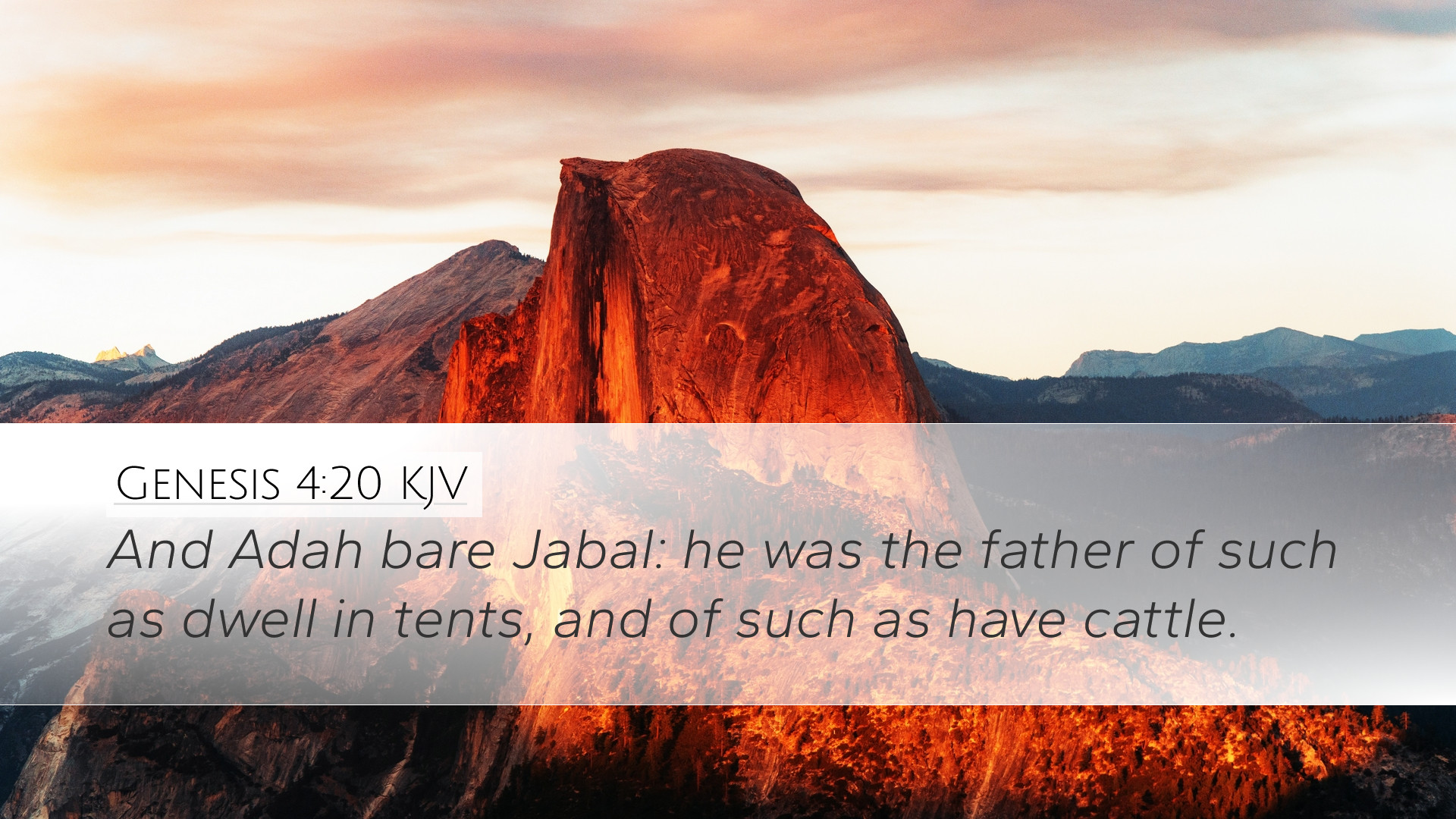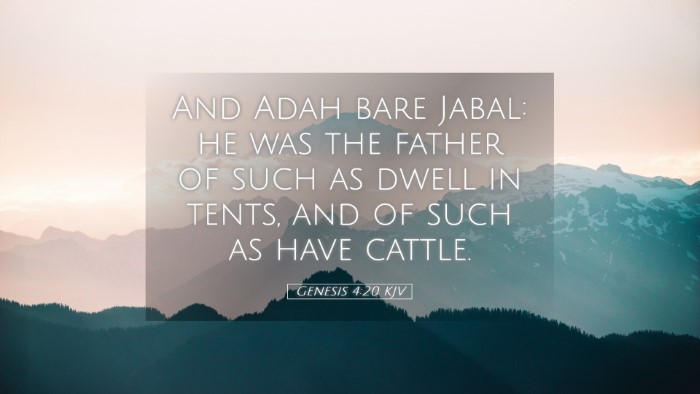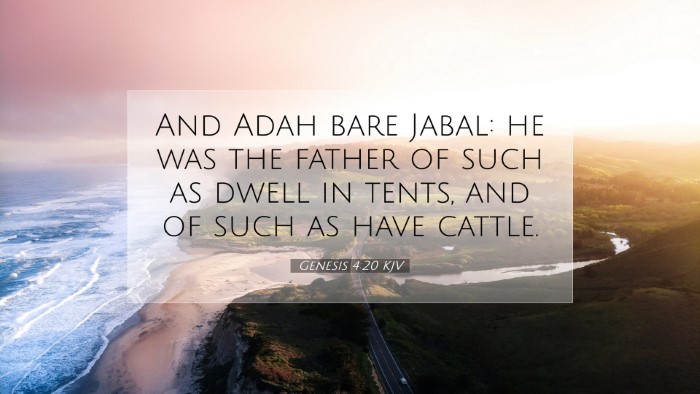Commentary on Genesis 4:20
Bible Verse: "And Adah bare Jabal: he was the father of such as dwell in tents, and of such as have cattle."
Introduction
This verse introduces Jabal, a key figure in the line of Cain, highlighting the development of civilization through his contributions. The mention of dwelling in tents and owning cattle signifies the pastoral lifestyle that emerged in the antediluvian age. This commentary explores the significance of this verse from various perspectives.
Contextual Background
Genesis 4 details the genealogy of Cain, portraying the early human experience as a blend of sin and achievements. Following Cain’s tragic act of fratricide against Abel, God marks Cain for protection while expelling him to the land of Nod. Thus, the descendants of Cain represent both human innovation and the ongoing ramifications of sin.
Insights from Commentators
- Matthew Henry: Henry emphasizes Jabal's innovation, describing him as the "father of such as dwell in tents." He notes that this represents a significant advancement in human society, as people transitioned from nomadic gatherers to settled pastoralists. The establishment of tents signifies the beginnings of community structures.
- Albert Barnes: Barnes highlights the cultural implications of Jabal's lineage, pointing out that until Jabal's time, humanity had primarily relied on hunting and gathering. This verse marks a pivotal moment in the development of agriculture and animal husbandry, reflecting humanity's adaptation to the earth and its resources.
- Adam Clarke: Clarke focuses on the terms used in the verse, particularly the word "cattle," identifying it with domesticated animals, which were crucial for subsistence. Clarke notes that Jabal's contributions laid the foundation for pastoral societies and foreshadowed humanity's increasing complexity and the division of labor.
Theological Reflections
Genesis 4:20 serves not only as a historical account but as a theological reflection on the nature of humanity in the wake of sin. The achievements of Jabal can be viewed as a duality of human ingenuity amidst an environment marred by sin.
Human Innovation
The cultivation of livestock and the creation of shelters here symbolize a desire for stability and community. Pastoral life fosters relationships, interdependence, and shared resources. The very act of Jabal's dwelling in tents also alludes to the transient nature of human existence, resonating with the biblical motif of pilgrimage and needing a divine homeland.
Sin's Implications
While the verse celebrates human achievement, it also underscores the reality of sin's impact on progress. Jabal's legacy arises from a line associated with Cain, pointing to the ongoing tension between cultivation and corruption. This duality raises questions about the righteousness of human innovation when separated from divine guidance.
Cultural Significance
The mention of Jabal as a figure who brings forth a life tied to agriculture and pastoral care suggests the diversification of societies and the beginnings of social stratification. His role as the father of tent-dwellers and cattle-keepers illustrates the emergence of varied vocations and lifestyles.
Lessons for Contemporary Culture
This passage invites reflection on modern dimensions of work, community, and creativity:
- Value of Work: The work of Jabal reminds us that various vocations are inherent to God's creation, each serving a purpose and contributing to societal flourishing.
- Community Development: As communities emerged from nomadic lifestyles, so must today’s communities prioritize collaboration and fellowship, echoing the way of life Jabal initiated.
- Righteous Stewardship: The pastoral imagery encourages a holistic view of creation care, emphasizing the caretaker role humanity holds in relation to divine stewardship.
Conclusion
Genesis 4:20 encapsulates a significant moment in the early history of humanity, reflecting themes of innovation, societal structure, and the tension between sin and human achievement. As we explore the implications of Jabal’s contributions, we are invited to consider our own call to cultivate culture rooted in righteousness. Jabal's legacy serves as a reminder of the potential for both construction and destruction inherent within human progress, a dichotomy that continues to resonate today.


